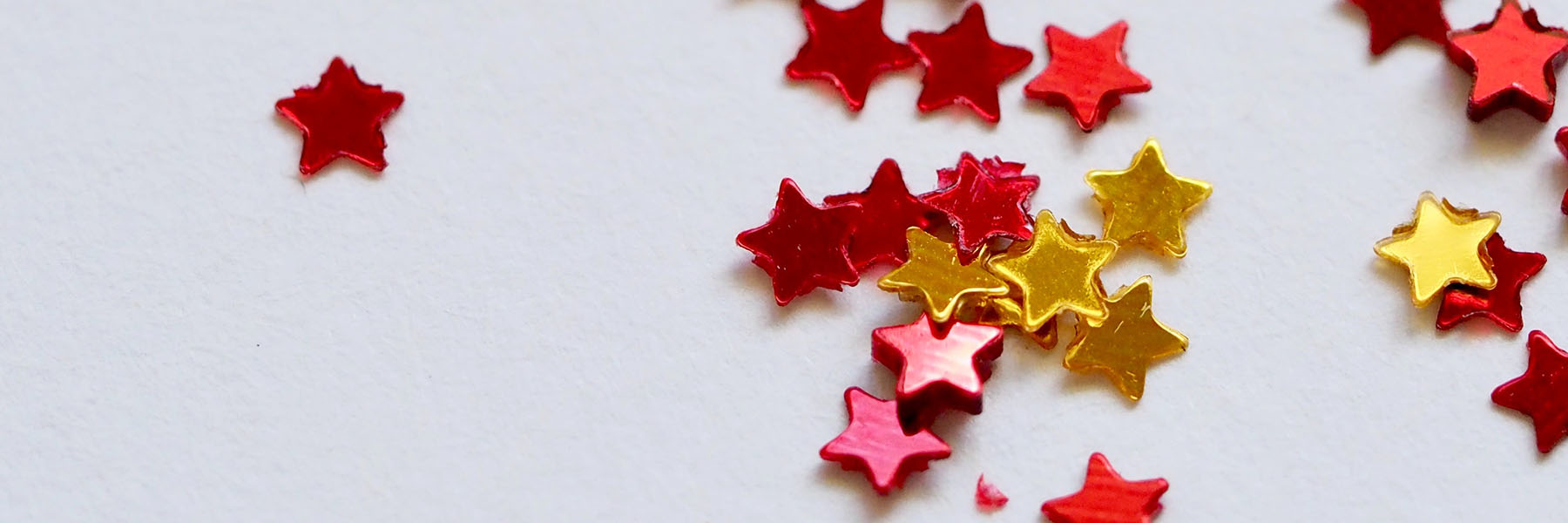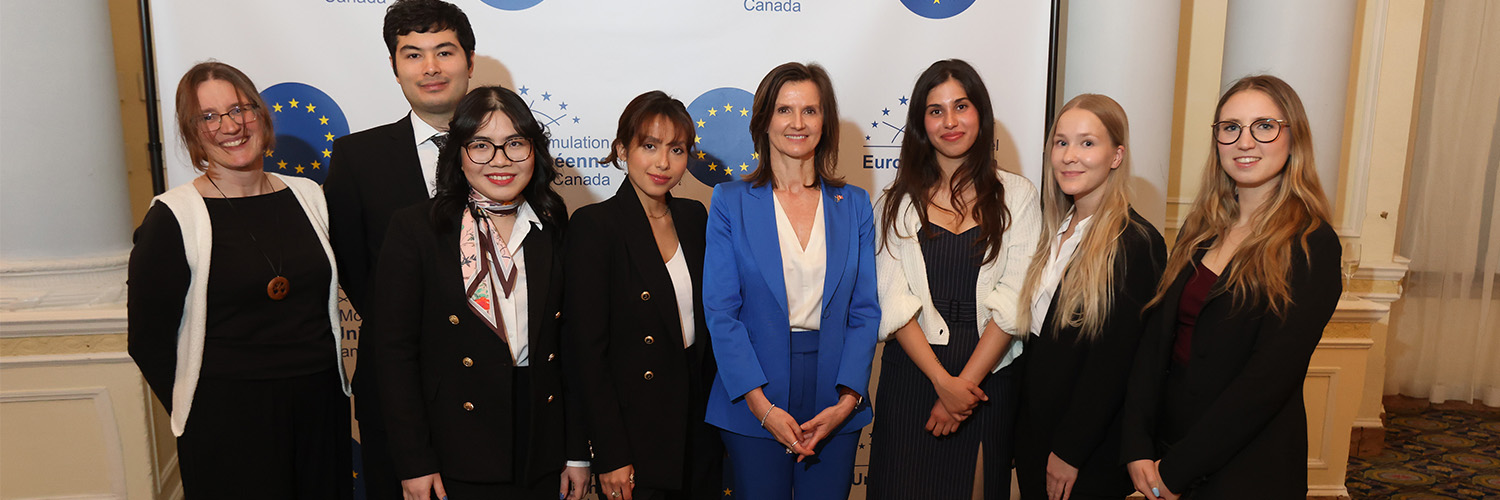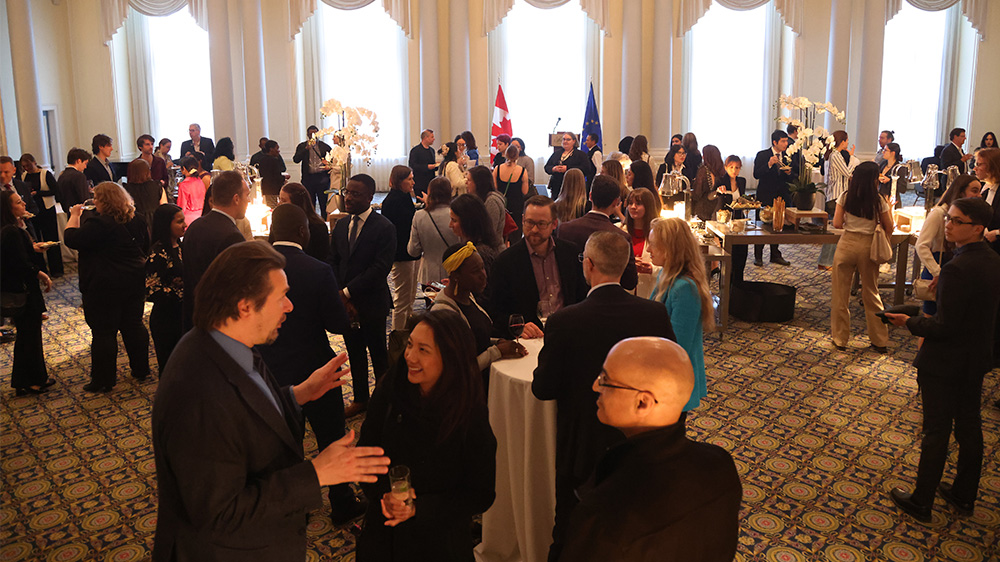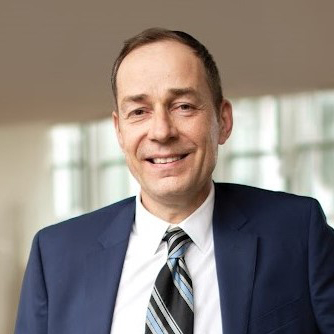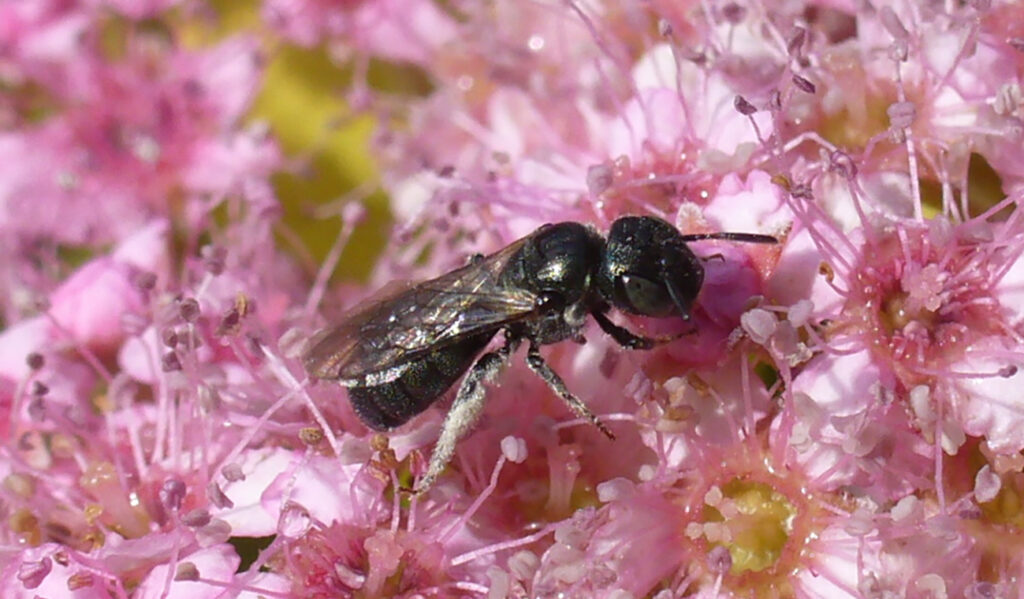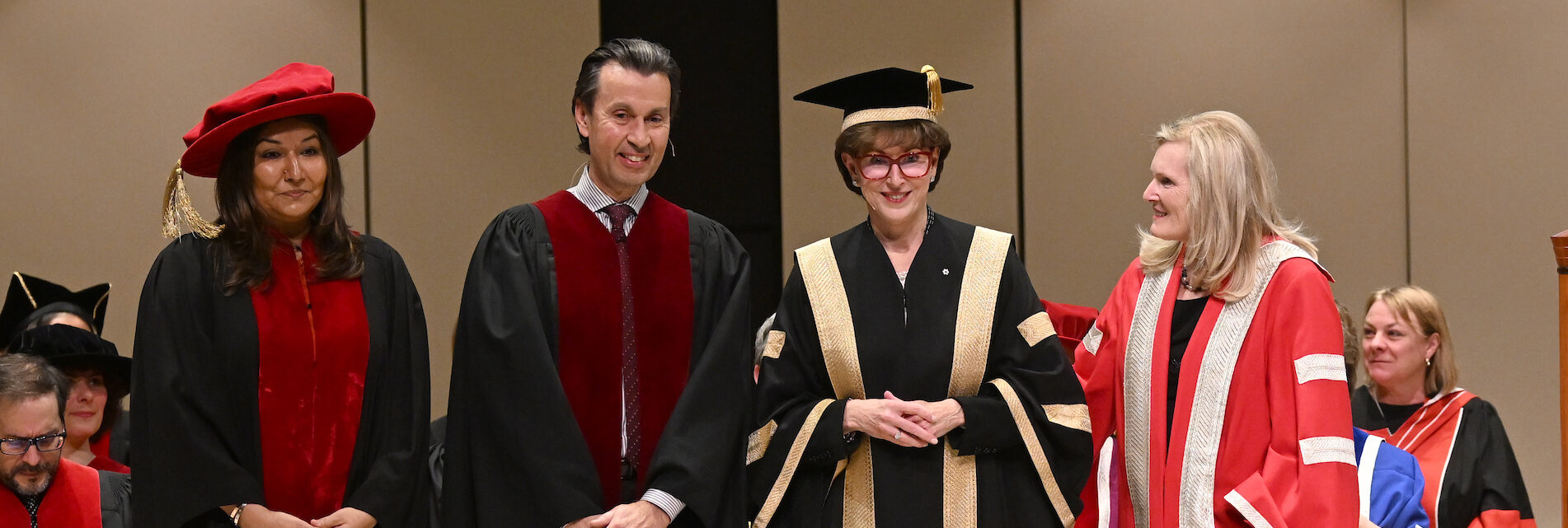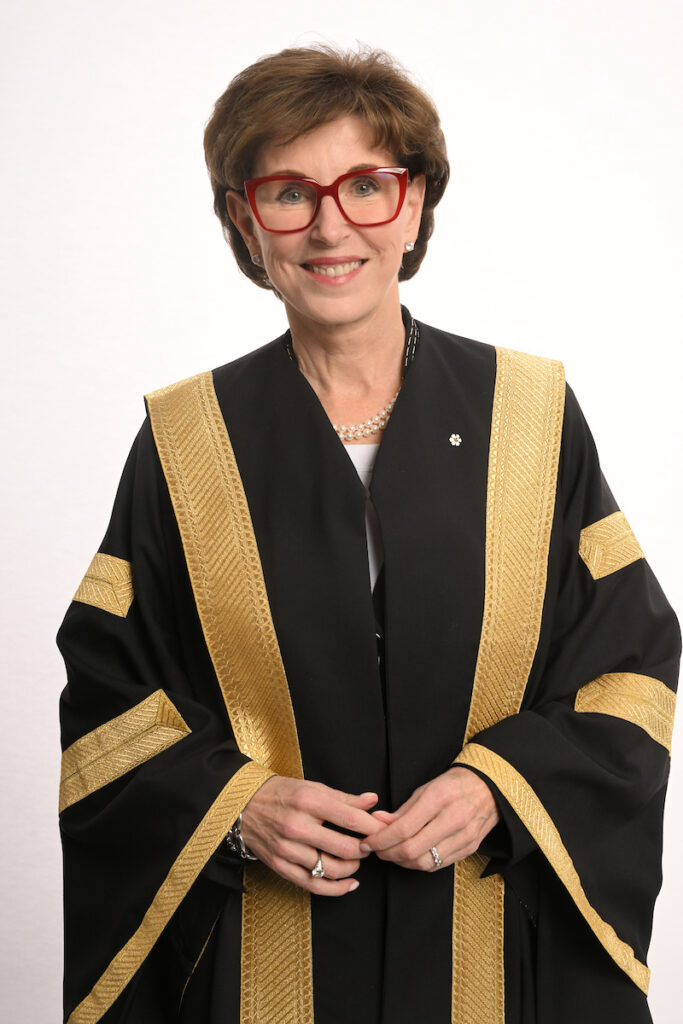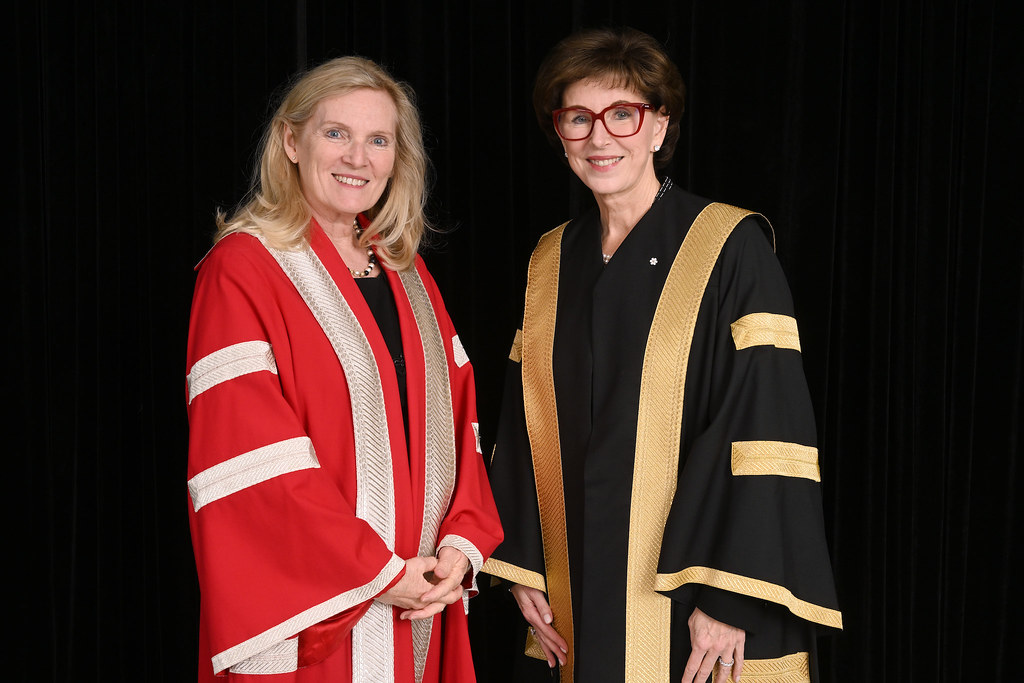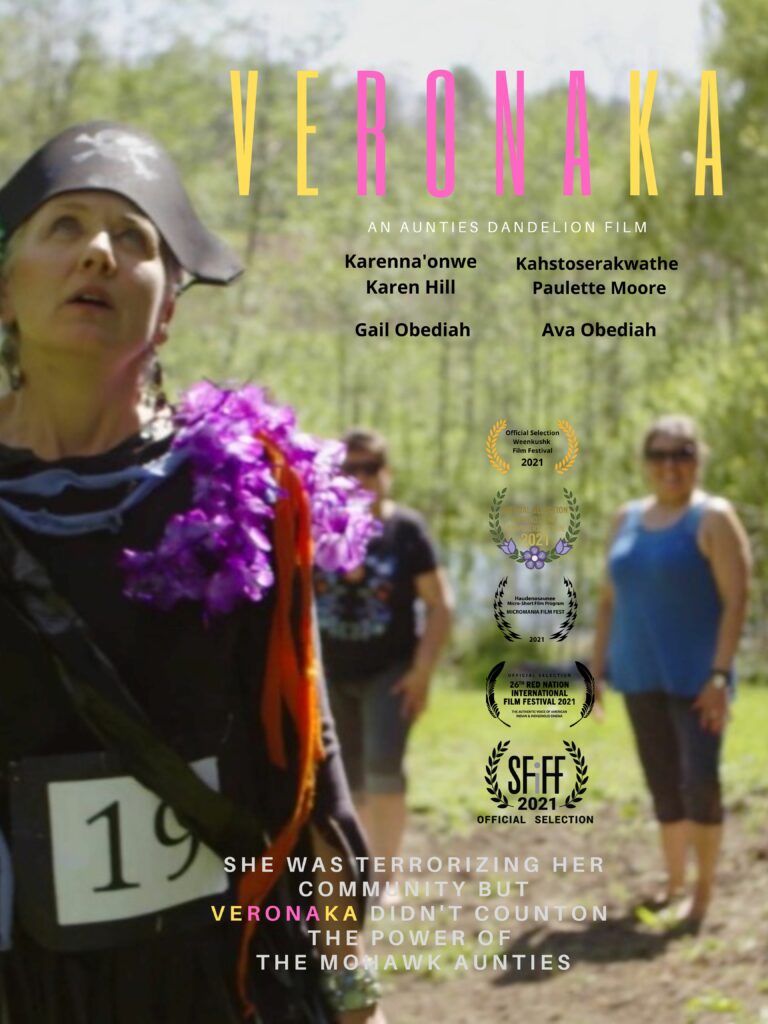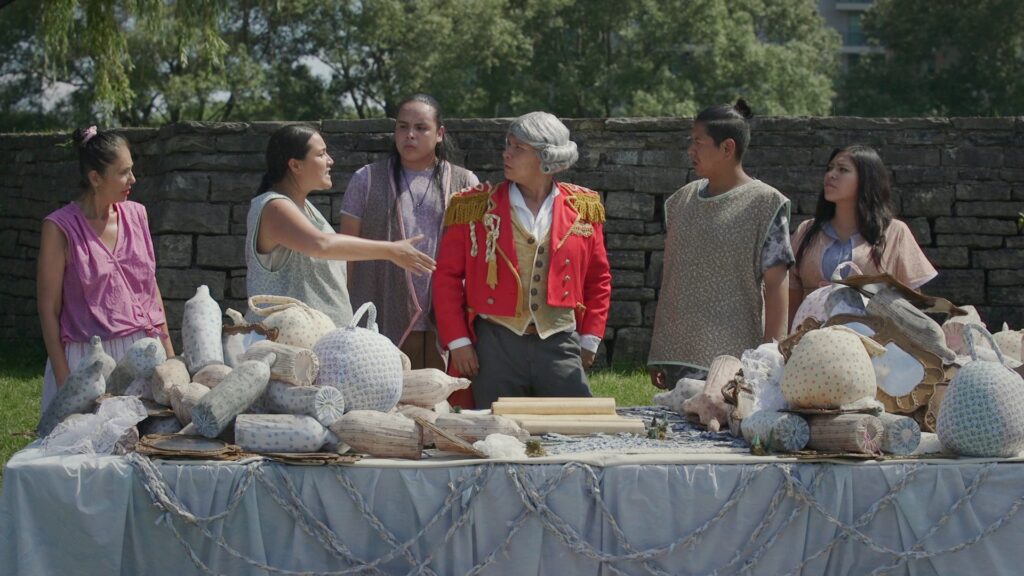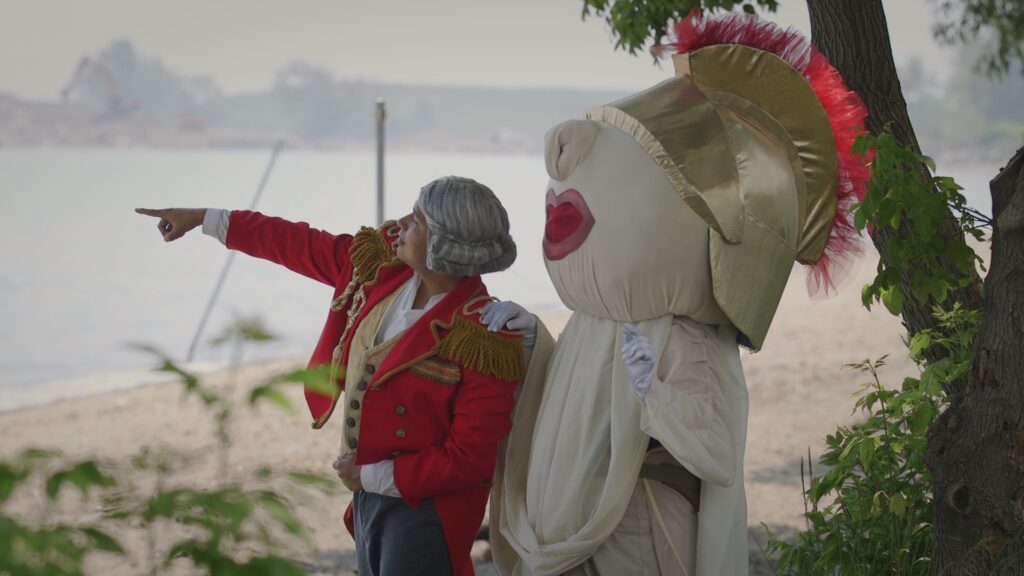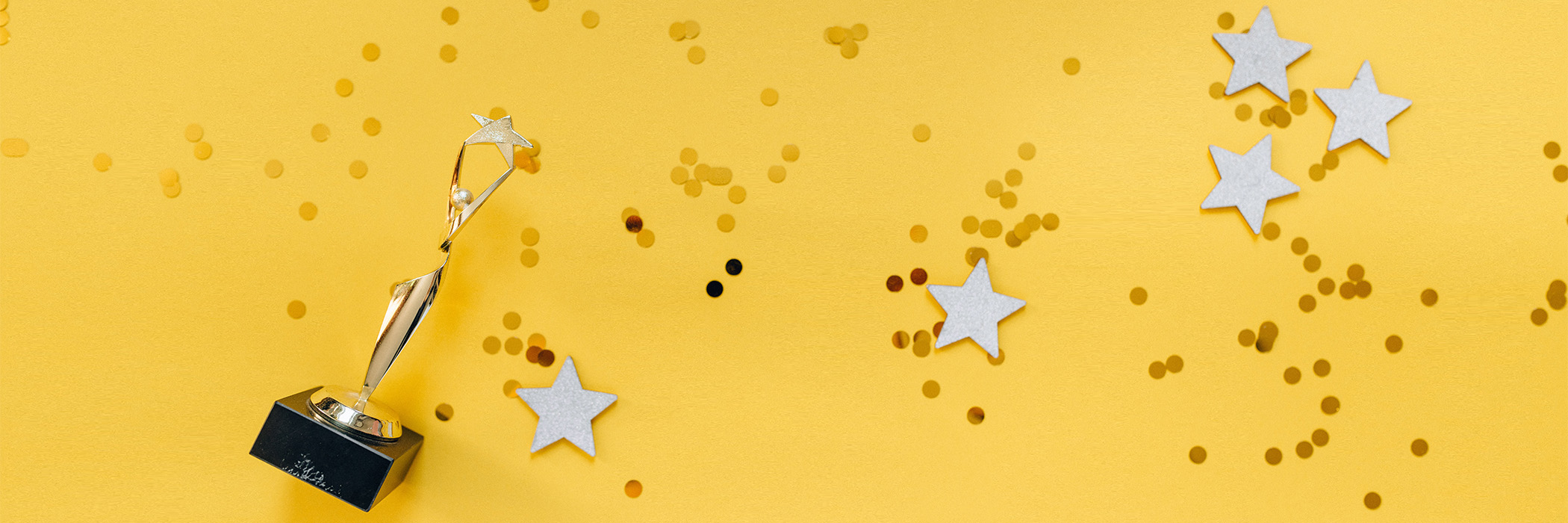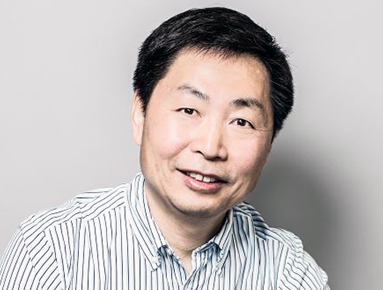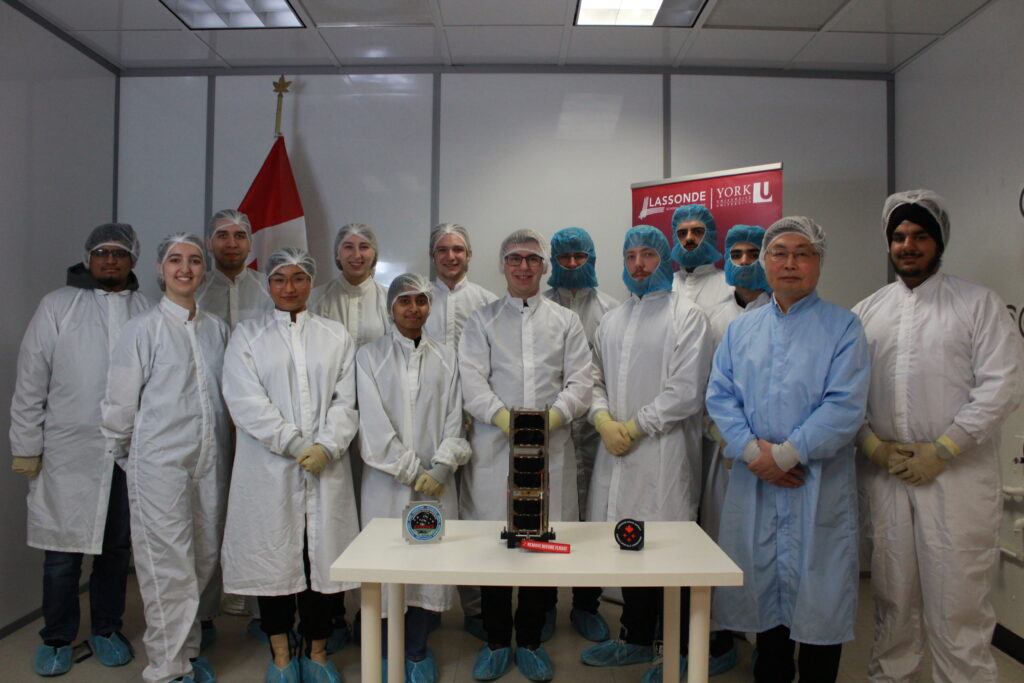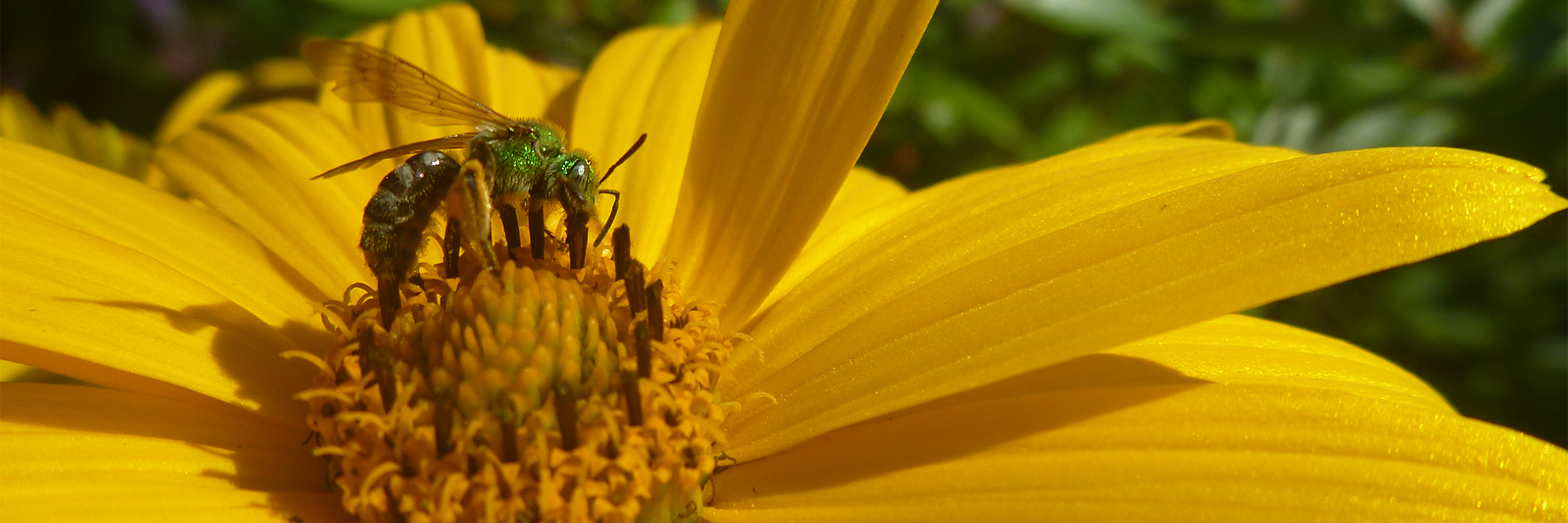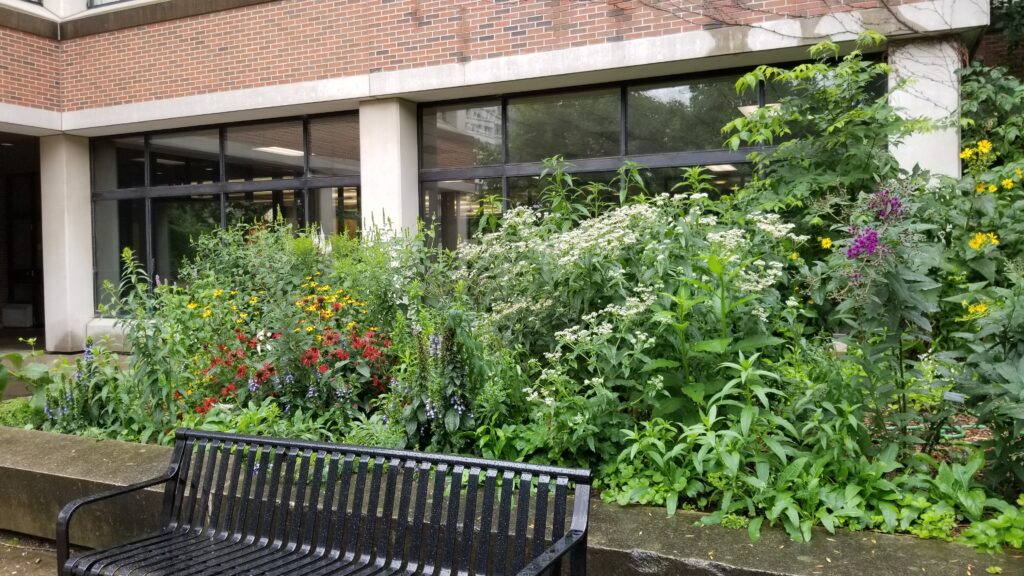By Elaine Smith
The Faculty of Environmental & Urban Change (EUC) at York University was formed in 2020, during the COVID-19 pandemic, and began forging its identity during the challenging period of isolation and remote course delivery. The first Changemakers Celebration – slated to be an annual event – ushered in a special joy when the achievements of EUC educators were commemorated in person.
“I wanted to accomplish two things this year,” EUC Dean Alice Hovorka told the assembled students, staff and faculty during the April event. “I wanted us to build community, especially coming out of the pandemic when we find ourselves with new ways of being in the world, and I wanted to document our impact – thus, our Changemakers event.
“As a new Faculty, the first couple of years were spent telling people all about who we are, what we do and what our programs are. Now, I want us to tell stories about what we’re accomplishing and the impact we’re having on the York University community and well beyond.”
The celebration marked the launch of the inaugural EUC Impact Report and lauded student researchers, volunteers and leaders. First up were the recipients of the 2022 Dean’s Changemaker Awards: William Anthony, Justin Chan, Thereza Eric, Samantha Navalta and Kaitlin Pal. These five students were given paid placement opportunities with EUC’s living labs and were required to design and pursue a project that created change.
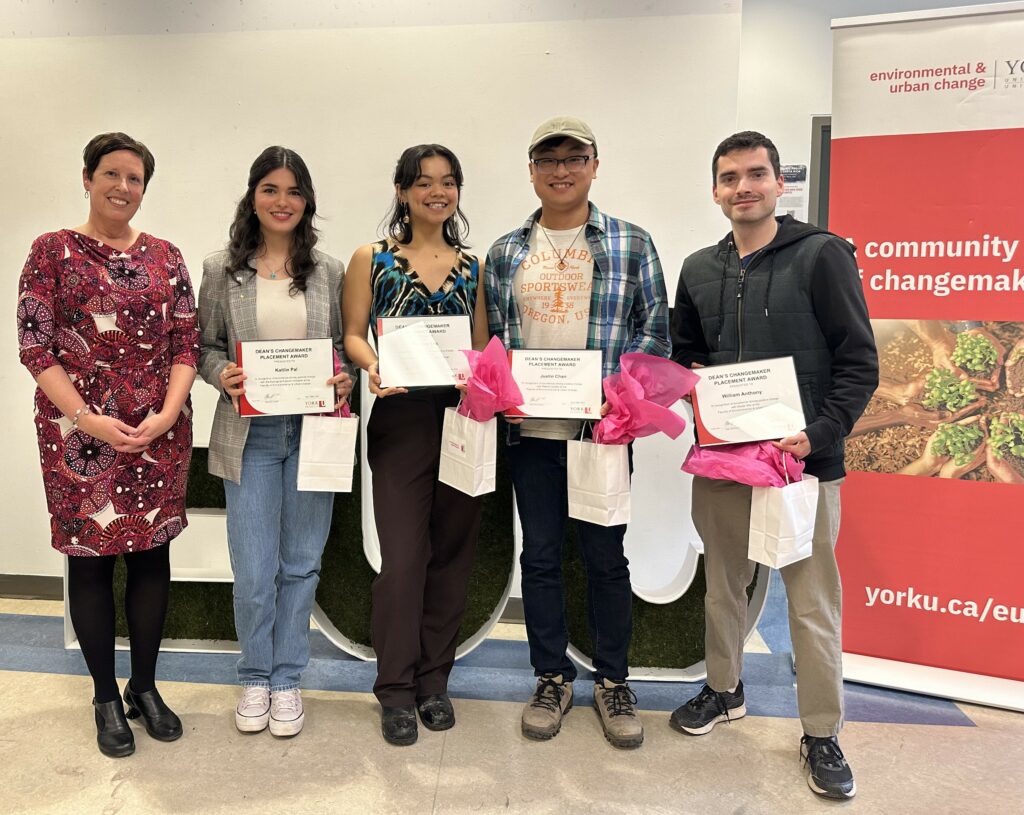
Many other students were recognized for their extra-curricular contributions to EUC during the celebration. Ann Tsirgielis, EUC’s student success advisor, congratulated the Faculty’s peer mentors, including Ryan Raymond Faria-Wong, the program coordinator.
Faria-Wong called his peers “highly dedicated individuals who go above and beyond to offer their knowledge and time to help others. … peer mentors assist in navigating questions and uncertainties and that goes a long way.”
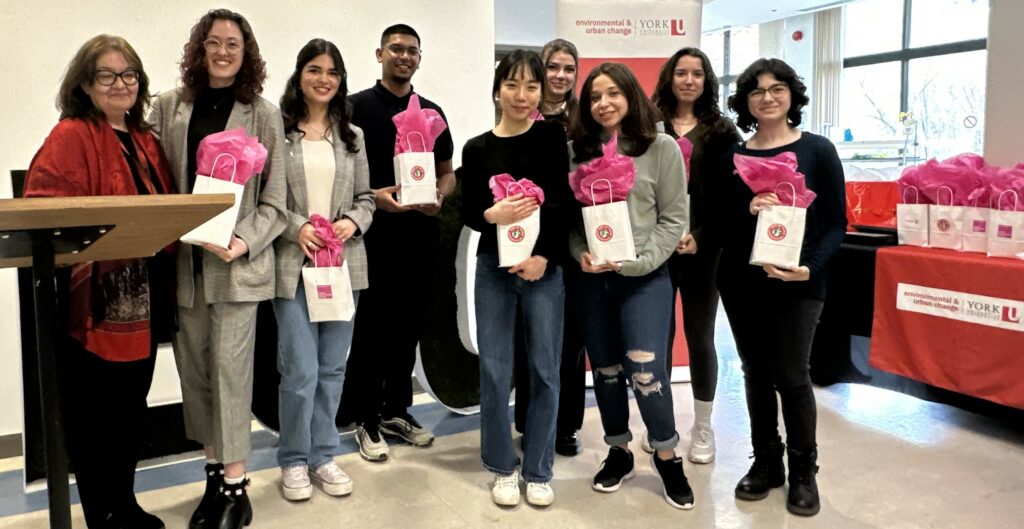
Summer Solmes, a student leader, spoke about the value of student clubs, whose members were also celebrated.
“Student groups drive change in this Faculty because they are composed of hardworking and passionate individuals,” she said. “Being a member of a student group offers you a chance to grow into the person you will one day become; it is a chance to manifest your future self.”
Rosanna Chowdhury, experiential education coordinator, and Deena Shaffer, director of EUC’s Office of Student and Academic Services, offered praise for the many other engaged students, including participants in the governance process, work-study students, volunteers and student leaders. EUC recognized 50 graduate and 11 undergraduate students earning academic and research awards, including the EUC Research Award (EUCRA), Natural Sciences and Engineering Research Council of Canada (NSERC) awards, Social Sciences and Humanities Research Council (SSHRC) awards and many more.
The celebration also honoured recipients of the 2022/23 EUC Dean’s Awards.
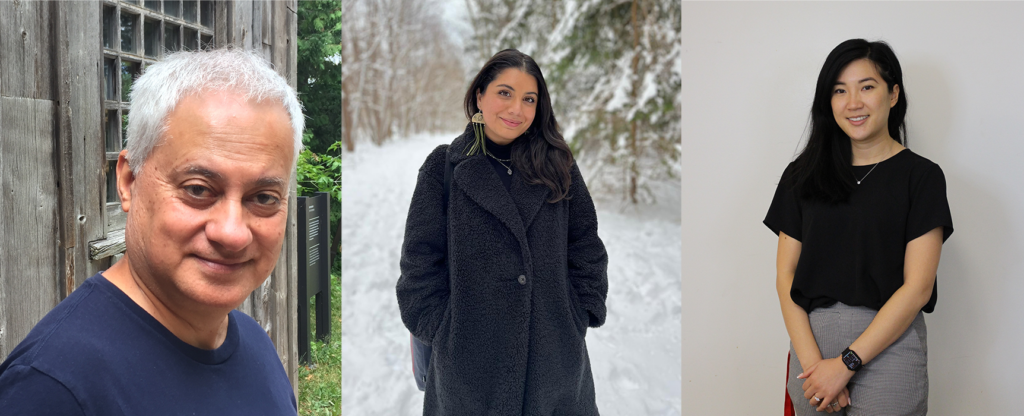
Professor Ilan Kapoor was the recipient of the Dean’s Teaching Award (faculty) with his nominators praising his exceptional pedagogical abilities: “He brings complex and dense subject matter alive, encourages critical thinking and allows students to be their best.”
Nashwa Khan, received the Dean’s Teaching Award (graduate student) for her pedagogical innovation and student support. She noted: “As a first-generation student and a Muslim woman, I understand the challenges that students from unique, diverse backgrounds often face. I have strived to make my educational practice one that is rooted in equity and care.”
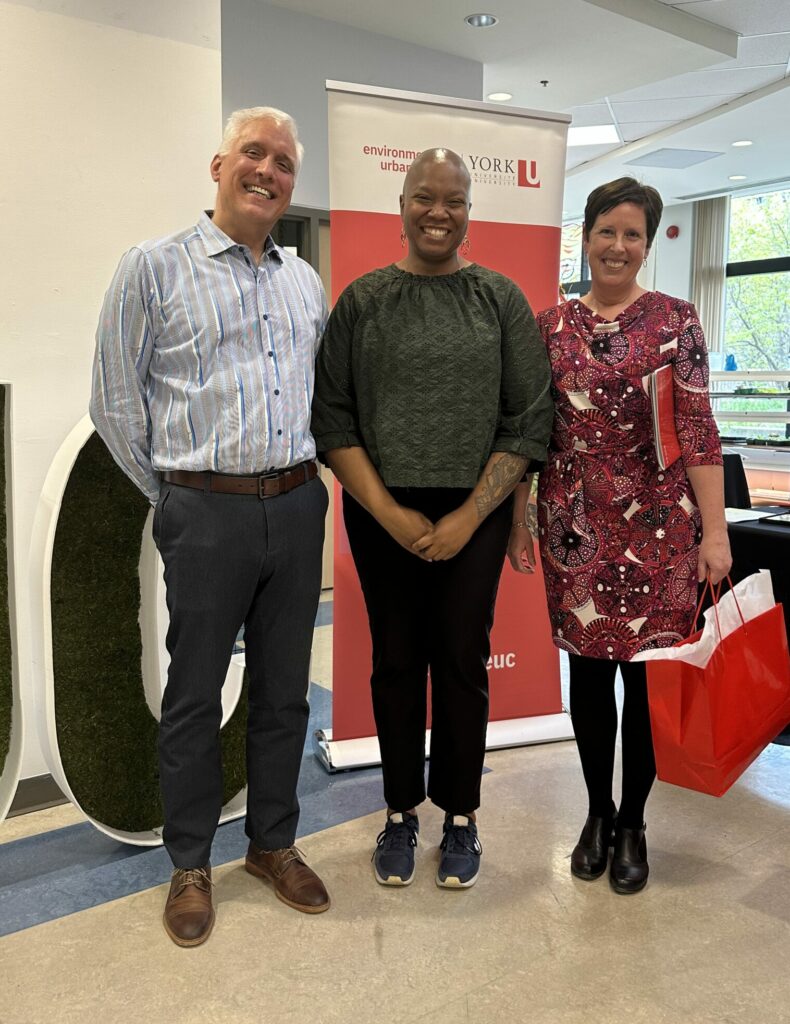
Joanne Huy, an alumni officer and EUC alumna, received the Dean’s Staff Recognition Award for her “unwavering commitment to excellence, creativity, innovation and leadership,” and her pivotal role in building community.
Finally, the Dean’s Impact Leader Award went to Nicki Hemmings, the departing human resources business partner, for her “substantive impact on our souls, hearts, processes, structures and culture,” said Hovorka.
The event concluded with the launch of the EUC Impact Report 2022/23.
“I want everyone to appreciate what EUC is doing to impact the world around us,” said Hovorka. “We’re enhancing the student experience, facilitating research excellence, advancing the United Nations Sustainable Development Goals and championing equity and Black inclusion.
“Like this celebration, I really see the report as a representation of all of us putting our best foot forward and working for more justice and sustainability in the world.”
For highlights from the inaugural Changemakers event, see the video below.


